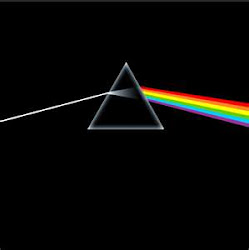
www.kopihangtuah.blogspot.com
SOCIETY as a whole is often generalised by common characteristics that are deemed pervasive whether or not that act of generalisation is fair or not. Such is the nature of society itself to be unforgiving towards itself. Everybody is fine when positive conclusions are made but everybody gets jittery when the bad act of some segments are extrapolated to the entire population.
Last Saturday I encountered two good examples of bad habits that can be easily generalised as our society's shortfall when it comes to their responsibility as the citizens of the country. At the Gegaria festival at Setia Alam Convention Centre, I saw a truck organised by the elections commission, Suruhanjaya Pilihanraya (SPR). In my mind, what a great effort to persuade citizens to be responsible. There was a queue, which is good.
As I see some people walking by, I stopped them, out of curiosity, and asked, "Excuse me Sir/Madam, may I ask why aren't you queing to register as a voter?" To my surprise, I got many "irresponsible" replies. Replies that warrant the generalisation about our society. This irresponsible attitude is apparent across all walks of life be it the different age groups, ethnic groups or any basic demography.
We have people who have turned twenty one but did not register as voters because they felt it is unimportant and a waste of time or even simply with "I do not have the time" type attitude. We have people who have registered but could not be bothered to vote because of the same reasons. We also have people who have conveniently booked their time that clashes with the elections for overseas leisure holidays.
When probed further, these people do have concerns over govermental matters such as taxes, the education system, health matters, public transportation issues, cost of living, income disparity, ethnic tensions, crime rates, public service quality, religion and many more matters that are important and require government intervention.
How on Earth are we, the good citizens of the country, are going to exercise our rights on these matters other than via the power of our votes? Are we going to continue barking on the social media platforms or march down the roads all dressed in one colour be it yellow or red? Are we going to continue embracing this irresponsible attitude and let our children follow our habit, our bad habit (being irresponsible voters)? Especially when the 14th General Election is just around the corner.
The second encounter is the attitude of wanting everything for free. It is as if we are treating other people's generosity as our right (to consume for free). We are not a socialist society. We are a moderate capitalist country. We are the believers of working hard and honestly to rightfully earn income and make our wealth grow. Our economy is the exchange of supply and demand. That social contract (supply vs demand) is sacred. Once we ignore it, we will literally become a society of thieves.
For example, a friend complained "Why is there a lot of advertisements on our national television channels? Why do we have to still pay tolls for the highways? If education is free, I should not even have to contribute via the PIBG (Parents-Teachers associations). Parking should be free. Hospitals are too expensive." The list is long with no ending. I hope these people realise that these matters are also relevant to the issue of being a responsible voter as discussed earlier.
I will not address all of the above but I will talk about television advertisements. The programmes you watch on the Free-to-Air Television (FTA TV) channel such as TV3, are free. You do not have to pay a single Sen. Now imagine, how on Earth will TV3 pay the salaries of their workforce? Those engineers, those cameramen, the TV hosts, the journalists and many more, are also entitled to earn income in this moderate capitalist country like all of you. They too have the rights as the citizens of the country.
There are also other costs such as telecommunication services, commissioning production houses, rental expenses and many more expenditure required of a TV station. How do they (TV stations) pay for these? Will the money fall from the sky? Well, this is why they have money coming from the advertisers. This is why there are advertisements.
What is more saddening, not only we want things for free, we are not alarmed with our habit of consuming pirated products especially those content that can be downloaded or streamed from the pirate sites. By law, this behaviour can be charged as a criminal offence as our country is a member of the Berne Convention for the Protection of Literary and Artistic Works (usually known as the Berne Convention, an international agreement governing copyright, which was first accepted in Berne, Switzerland, in 1886).
So are we an irresponsible society?
* kopihangtuah
| mcmlxxv:viii:xxix |


